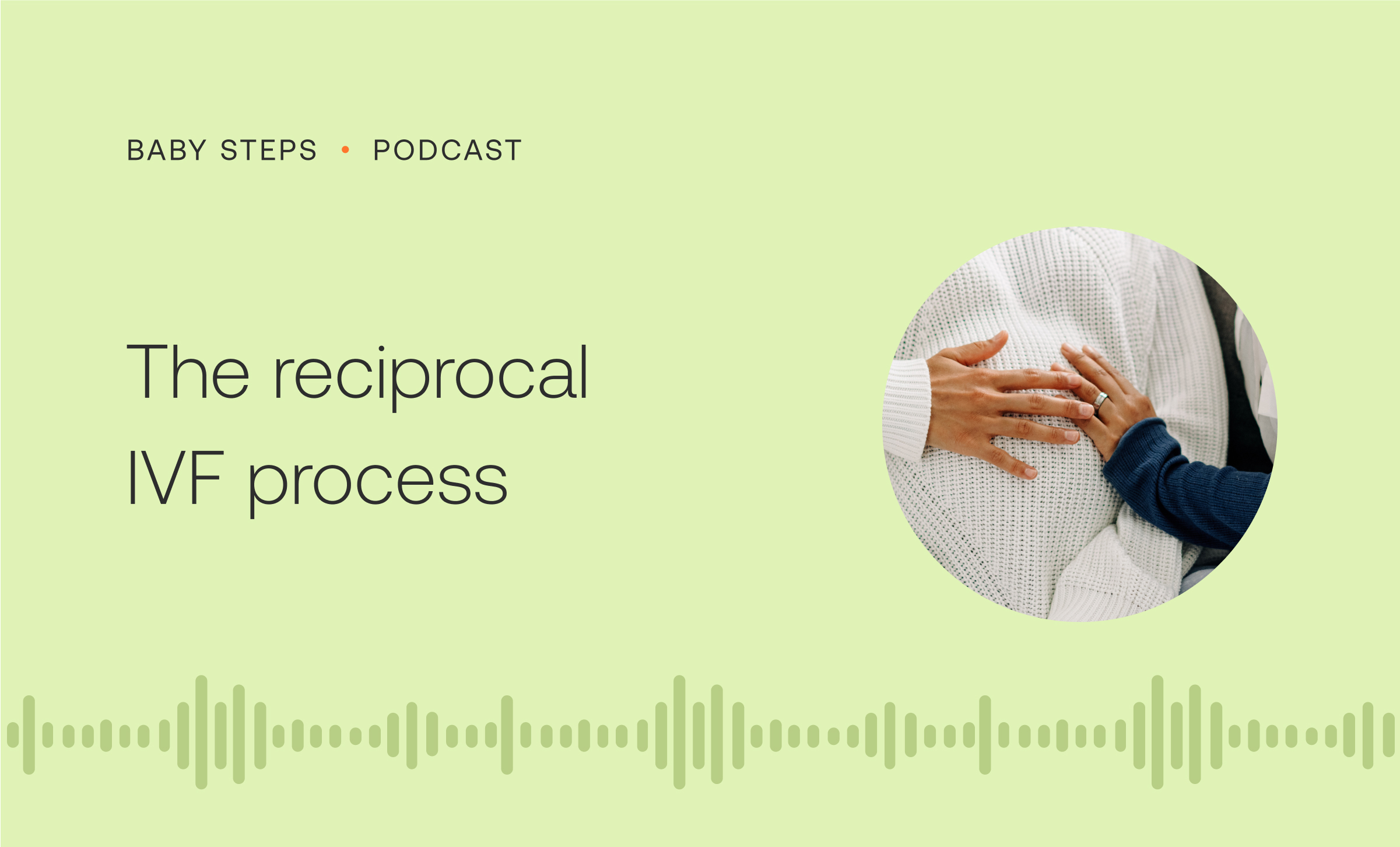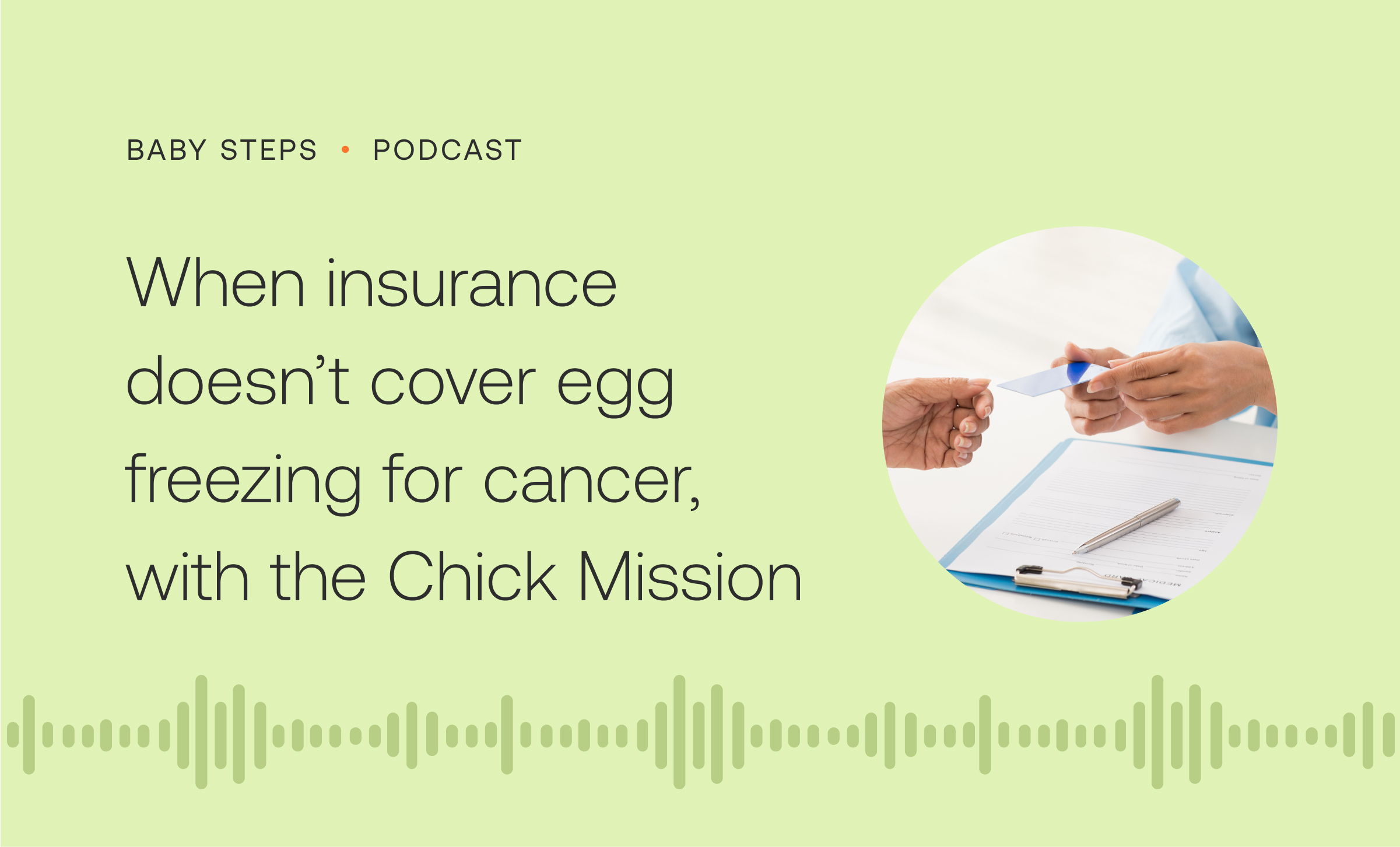As Carrot’s Co-founder and Chief Medical Officer, as well as a practicing reproductive endocrinologist and infertility (REI) specialist, it’s my job to be on the cutting edge of reproductive medicine.
As new fertility treatments become available, identifying the treatments in which potential benefits outweigh risks — or vice versa — helps me support people’s family-forming goals with the most up-to-date evidence.
Over the past few decades, fertility clinics have begun offering more and more adjunct treatments alongside in vitro fertilization (IVF). Although data can be limited in some cases, research gives us a good idea of which IVF add-ons are backed by evidence — and which likely cost more than they’re ultimately worth.
What are IVF add-ons?
IVF add-on treatments are adjunct medications or other procedures used in tandem with standard IVF protocols in an effort to boost outcomes.
Commonly used IVF add-ons include:
- Intracytoplasmic sperm injection (ICSI): In ICSI, an embryologist chooses one sperm with high-quality parameters to inject into an egg versus conventional insemination (~$1,000 to $2,000).
- Preimplantation genetic testing for aneuploidy (PGT-A): In PGT-A, the chromosomes in the embryo are tested via biopsy before an embryo is transferred (as much as $5,000 per IVF cycle). This is to determine if there is a normal or abnormal number of chromosomes present in an embryo.
- Endometrial scratch: In an endometrial scratch, the endometrium (uterine lining) is “scratched” through a procedure similar to an endometrial biopsy before an embryo transfer cycle to improve implantation rates (~$100 to $300).
- Heparin: Heparin, a medication used to prevent and treat blood clots, is also an add-on offered to improve IVF outcomes if taken around the time of implantation (around $60 for a prescription without insurance; if continued throughout pregnancy, the cost can be significantly higher).
- Metformin: Metformin, a medication used to treat insulin resistance, has been recommended for people with polycystic ovary syndrome (PCOS) who are undergoing IVF (around $60 for a prescription without insurance).
IVF add-on treatments are mostly unregulated in the U.S. — meaning fertility clinics can offer them without rigorous evaluation by another party first. In addition, because some IVF add-ons aren’t supported by robust evidence, they may not be covered by insurance.
Are IVF add-ons helpful, harmful, or somewhere in between?
Some researchers have questioned the ethics of IVF add-ons because they can cost a lot of money, aren’t demonstrated to improve outcomes, and can give IVF patients unrealistic expectations. This can contribute to financial and emotional harm for patients undergoing IVF.
A 2021 article in Reproductive Sciences evaluated the information fertility clinics put on their websites regarding IVF add-ons. According to the paper:
- Only 12.5% of the websites reviewed acknowledged that the effectiveness of the add-ons they were marketing was undetermined
- Only 7.1% mentioned price
- Websites very rarely listed scientific references
While the 2021 paper didn’t cover all fertility clinics or all IVF add-ons, the findings signal a discrepancy in the efficacy of treatments and how we market them — and they echo what similar studies have concluded: there is a distinct need for transparency, accuracy, and accountability when it comes to how these clinics market their services.
Another important factor to consider when evaluating the ethical impact of IVF add-ons is how these offerings may affect individuals on emotional and psychological levels. The disconnect between what patients are told and what they expect can be exacerbated by the high emotional stakes already surrounding many patients’ IVF experiences. By the time a patient tries IVF, they may have already gone through multiple cycles of trying to get pregnant. After months or years of trying, it’s natural to hope that every step or addition to the treatment protocol may be the “miraculous” one that will help you reach your goals. If that doesn’t happen, it can be heartbreaking.
What the research says about individual IVF add-ons
In a 2019 editorial in Reproductive Biomedicine Online, the authors suggested that collecting robust evidence to support or deny IVF add-ons is a difficult task. As scientists know very well, large, randomized controlled trials (RCTs, the gold standard for evaluating medical interventions) are expensive, time-consuming, and require hundreds or thousands of participants before findings can be statistically significant.
What does the current literature tell us about IVF add-ons? Are there RCTs to point to? Luckily, there are Cochrane systematic reviews — often considered the highest quality of review in evidence-based healthcare — for some of the most commonly used IVF add-ons, specifically ICSI and PGT-A. Here is a brief overview of the research around common IVF add-ons:
- ICSI: ICSI has been shown to improve fertilization rates in cases of male factor infertility, but in many clinics it is also used in non-male infertility. A Cochrane review that was last updated in 2010 concluded, “whether ICSI should be preferred to IVF for cases of non‐male factor subfertility remains an open question.” A 2020 Committee Opinion from the American Society for Reproductive Medicine affirmed this take, adding that ICSI may also be a useful treatment for those who aren’t experiencing male-factor infertility but who are undergoing IVF, have had a previous cycle with poor fertilization using conventional insemination, are doing preimplantation genetic testing for monogenic disease (PGT-M), and are using frozen eggs.
- PGT-A: According to a 2020 Cochrane review, researchers don’t have sufficient evidence demonstrating a difference in IVF outcomes including cumulative live birth rate, live birth rate after the first transfer, or miscarriage rate. They also didn’t find data for ongoing pregnancy rates. However, a systematic review and meta-analysis published the following year did find increased live birth rates among women over 35 years old.
- Endometrial scratching: A 2021 Cochrane review looking into the benefits of endometrial scratching for IVF was inconclusive — outcomes with and without endometrial scratching were comparable. Based on the existing data, the researchers did not recommend routine, universal use of endometrial scratching prior to IVF cycles.
- Heparin: A 2013 Cochrane review investigating heparin’s impact on IVF outcomes found that there wasn’t a clear impact on live birth and clinical pregnancy rates (confirmed by a healthcare provider) among subfertile women. The researchers don’t recommend routine, universal heparin use based on these results but acknowledged more high-quality research is needed.
- Metformin: A 2014 Cochrane review found comparable live birth rates, increased clinical pregnancy rates, and decreased risk of ovarian hyperstimulation syndrome when reviewing insulin-sensitizing agents, such as metformin, against placebo among people with PCOS. A prospective randomized study published in 2010 demonstrated that low-dose metformin may improve pregnancy rates specifically among patients without PCOS in repeat IVF cycles.
Carrot’s take on IVF add-ons
Carrot’s mission is to support all members’ fertility and parenthood goals with the most evidence-based care available. Our benefits cover a wide range of fertility treatments, including IVF add-ons that have demonstrated statistically significant benefits. We also understand that treatments are not a one-size-fits-all approach,
As additional treatments are supported by new research, Carrot will continue to reflect evidence-based personalized education and guidance. Members can speak with fertility care or specialists in other disciplines to help them understand what treatments may be available so they can come up with a personalized protocol with their healthcare provider.










.avif)



